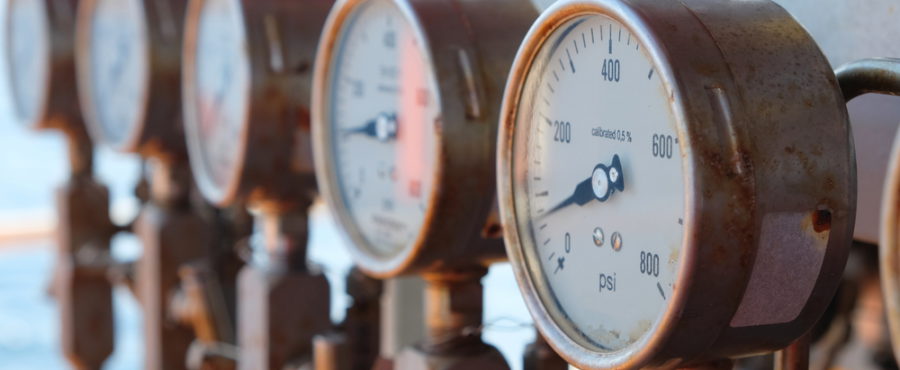Our heating systems are vital if we want to stay warm and comfortable at home or at work, especially during the colder months. A gas heating system is one of the most common heating systems, involving a boiler, gas pipes and radiators, to provide central heating to both commercial and domestic properties.
While the boiler is an essential component of central heating (it heats the hot water that is then dispersed around the property), the pipes are also vital for transporting the heat throughout your home. It’s important to look after your gas pipes with regular maintenance, and to know the signs to look out for that indicate they need repair or replacement. If you want to know more about how to look after your pipes, and the repair warning signs to look out for, see our handy guide below.
What are gas pipes?
Gas pipes are, as you might imagine, the pipes which carry water heated by a gas-fired boiler to radiators throughout a property. There are several different materials approved for gas work, and pipes can be made from steel, copper, brass or aluminium, to name just a few.
Steel and copper are the most common materials used inside buildings, and there are other materials used for any pipes buried outside a building, such as polyethylene. The piping that runs inside a building is called the gas supply line or building line, and there are also branch lines which connect to individual appliances. Gas piping cannot be run through chimneys or duct systems, and all gas connected appliances are required to have a shut-off valve next to them.
Gas pipes and boilers should always be installed, repaired and maintained by a Gas Safe Registered plumber.
How to look after your pipes
Gas systems are extremely effective and safe, but it’s still important to know some basic information about your system and how to look after your pipes. This will ensure your gas pipes stay in good condition, and could reduce the need for costly repairs if a problem goes untreated. See some of our tips below for easy ways to care for your gas system.
Get to know the installation
You don’t need to be a fully trained plumber, but it’s important to get to know your gas system and be aware of where you can shut off the gas if you suspect a leak or any other problem. In most cases turning off your gas is very easy, simply turn off any natural gas appliance taps and pilot lights, then switch the safety shut off valve into the ‘off’ position.
You should also ensure that you can easily access your boiler and gas meter at any given time.
Regular visual inspections
You can do this yourself, but it’s usually better to have them inspected by a professional to be sure. Check the condition of fixed and flexible pipes, paying particular attention to the fittings and joinings where a gas pipe meets an appliance.
Shut off the gas if you go away
This isn’t a necessary requirement everytime you go away for a long weekend, but if you’ll be away from your home for a few weeks or months, then you can switch off the gas supply just to be safe. You’ll need to check that all gas equipment is switched off before reopening the valve, and it’s best to only do this in the summer, as pipes can freeze over during winter if not in use.
Prevent them from freezing
When temperatures plummet, the risk of your pipes freezing or bursting increases, but this can be easily prevented with a little forward thinking. Regularly running water through your taps (or even leaving one to drip very slowly) can help prevent pipes freezing, and if you can afford it, leave the heating on at a lower temperature if you go on holiday.
Adding general insulation to attics, cellars and around windows and doors, can also keep your home at a stable temperature and stop pipes freezing or bursting during the winter.
Signs you might need gas pipe repairs or replacement
Even if you take regular and diligent measures to look after your pipes, sometimes issues do happen, and this is usually due to general wear and tear or the old age of your gas pipes. Gas leaks can be very dangerous, so if you suspect you have a problem with your gas pipes or boiler, it’s vital to get the issue fixed as soon as possible.
A leaking gas line is usually the most common issue, but if you’re unsure about what potential gas problems look like, see below for some signs that you may need gas pipe repairs or a replacement.
You can smell gas
Natural gas is actually odourless, but suppliers add a strongly scented chemical to make it easier to identify gas leaks. The smell is a distinctive sulphurous odour similar to rotting eggs, so you’ll definitely be aware if there’s a leak! If you do smell gas, open as many windows as possible, turn off the gas at the mains tap, and call the National Gas Emergencies Number as soon as possible.
Unusual noises from the pipes
Loose or leaking pipes often make unusual sounds which will indicate that there’s an issue. A hissing noise coming from your pipes can mean that there’s a hole allowing gas to leak into your home, or a clanging or banging sound can mean there’s a break or loose joint in the piping system.
Dizziness or breathing problems
Even if you can’t hear or smell a gas leak, if gas is leaking into your home it can cause a range of health problems, including headaches, dizziness, nausea, drowsiness, and breathing problems or chest pain. If you notice a cluster of these symptoms amongst anyone living or working in the property, then shut off the gas and call the emergency number immediately.
Gas bills are higher than usual
A broken or inefficient gas pipe system can lead to an unexpected increase in your gas bills, as more gas is required to heat the property if there’s a leak. Unless you’ve been turning up the thermostat or having the heating on more than usual, a significant hike in your gas bill usually indicates a problem with the system.
If the property is old
If you live in a house built before 1970, chances are that it will use cast iron pipes for the gas system. While this material is very durable and can withstand a lot of usage, if your home is around 100 years, chances are that the pipes are reaching the end of their lifespan.
It can be cheaper and more efficient to simply replace the piping system, rather than continuing to pay for costly regular repairs.
If you’ve had recent building work
If you’ve recently renovated your home, especially the bathroom or kitchen, there’s a chance that gas pipes could have been damaged unintentionally during the process. Renovations are actually the perfect time to check on the condition of your pipes, as they often expose some of the piping system usually hidden behind walls or under floorboards.
If you think there may be an issue with your gas pipes or boiler and are in need of servicing or repairs, get in touch with the professionals at West London Gas. We offer a full range of services, including gas appliance installations, servicing, breakdown repairs, gas boiler replacement and much more.
We have everything you need to keep your gas and central heating systems running smoothly, and our gas and heating engineers offer competitive prices for installation and repairs for your West London property. For more information about any of our services, give us a call today or visit our website to find out more.

